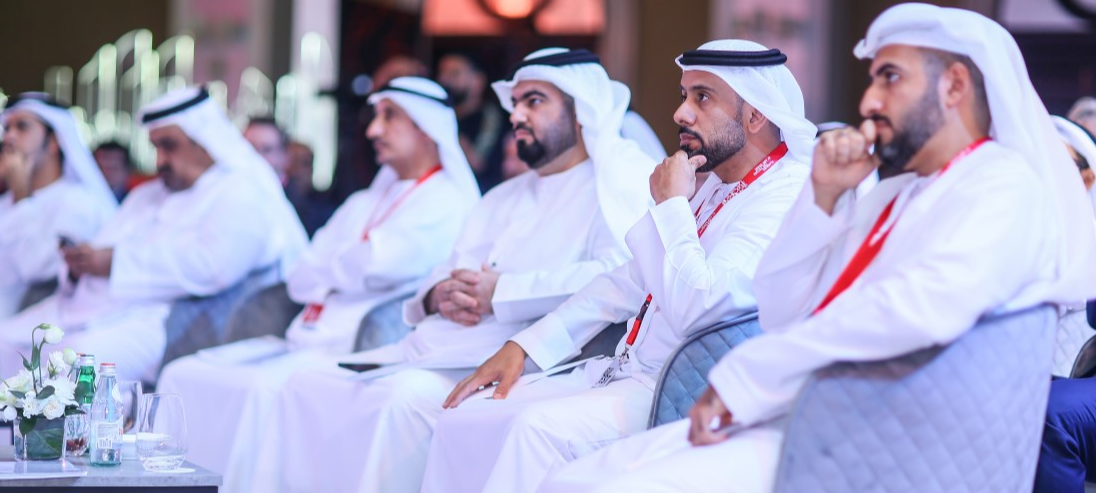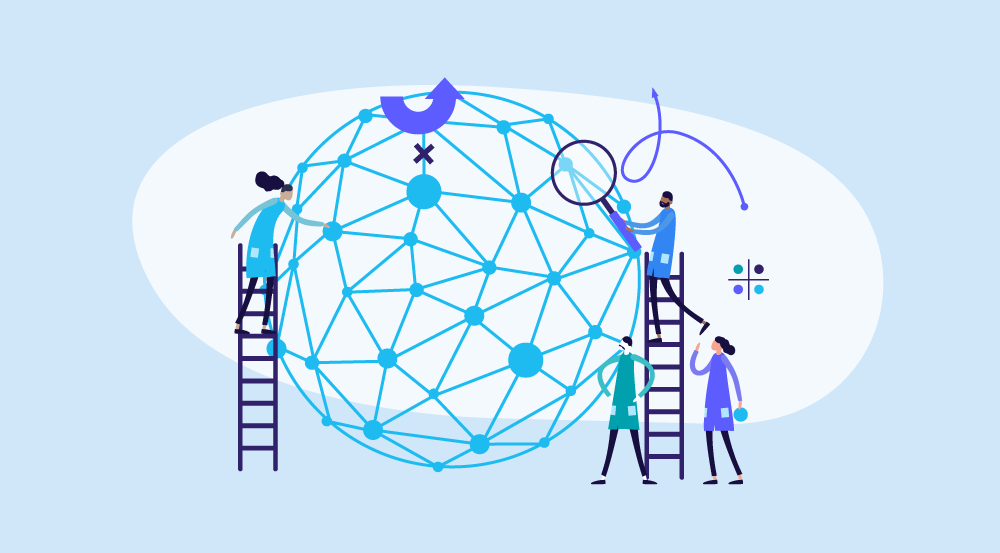Diversity and inclusion, also known as D&I, is all about creating an environment that welcomes and involves people from diverse backgrounds within an organization.
When we talk about diversity, we're referring to the unique traits and characteristics that every individual possesses, such as age, gender, ability, culture, nationality, personality, education, and ethnicity.
It's important to recognize and value these differences.
Many organizations, about 67%, report that they use diversity training.
Studies have shown that diversity task forces can have a significant impact on increasing the representation of minority groups, with increases ranging from 9% to 30%.
These task forces focus on the power of social accountability, highlighting the importance of diversity in the workplace.
Interestingly, only a small percentage of medium to large employers, just 20%, have diverse task forces in place.
This means that the majority of companies are missing out on the proven benefits that these task forces can bring.
Despite the clear advantages, approximately 80% of companies refuse to use diversity task forces.
But it doesn't stop there.
Inclusion is just as crucial. It's about cultivating a culture where everyone feels welcome and respected, regardless of their differences.
This means promoting behaviours and social norms that create a sense of belonging and ensuring that everyone has equal access to resources and opportunities.
In an inclusive environment, all employees are given a chance to thrive and contribute their ideas towards common goals.
So, when we talk about D&I, we're talking about taking tangible steps to create a company culture that fosters inclusivity.
In bigger organizations, diversity and inclusion transitions to a broad spectrum category, where a lot of different dynamics are working altogether toward the same goal.
This analogy is applicable, sporadically across multiple departments – and that’s where DEI workshop and DEI workshop ideas come in.
In this post, we’ll dig deeper into the former to get a better understanding of the overall importance of DEI workshop(s), and their contribution to Saudi Vision 2030.
Let’s get started.
What is DEI?
DEI stands for Diversity, Equity, and Inclusion. It is a term used to describe a set of principles and practices aimed at creating a more diverse, equitable, and inclusive environment within organizations, communities, and society as a whole.
Here's a breakdown of each component:
1. Diversity
This refers to the presence of a variety of different identities, backgrounds, perspectives, and characteristics within a group or community.
Diversity can encompass differences in race, ethnicity, gender, sexual orientation, age, socioeconomic status, disability, religion, and more.
2. Equity
Equity involves ensuring that everyone has access to the same opportunities and resources, regardless of their background or identity.
It focuses on identifying and addressing systemic barriers that might disproportionately affect certain groups, and aims to provide fair treatment and support to individuals with different needs.
3. Inclusion
Inclusion means creating an environment where all individuals feel valued, respected, and included, regardless of their differences.
An inclusive environment encourages collaboration, open communication, and active participation from all members, allowing them to contribute their unique perspectives and talents.
The DEI framework aims to address historical and structural inequalities by promoting a more just and fair society where everyone has an equal chance to succeed, and where differences are not only tolerated but celebrated.
Many organizations and institutions have adopted DEI initiatives to foster more inclusive workplaces and communities and to promote social change.
7 DEI Workshop Strategies Used By Worldwide Organizations
Enterprises characterized by diverse and inclusive staff are inclined to surpass their rivals by a 35% greater chance.
Following is a collection of DEI workshop topics that different companies have been incorporating in their offices.
It’s an ongoing process, and a lot of lessons are to be learned from each DEI workshop topic.
If you’re in a business looking to evolve through disruptive diversity and inclusion strategies, the following companies have tons of takeaways to share with the rest of the world.
1. Embracing Equity-Centered Design
Equity-centered design is about involving diverse communities in the planning and implementation process, so their voices can have an impact on addressing inequities.
It's not something that happens by chance, but rather requires intention and focus.
While it can be applied to various institutional environments, it particularly aligns well with education and learning, and even research design.
It can also be used to reshape power structures within organizations, such as advisory boards.
Many such companies have dedicated board members consisting of individuals who are committed to equity.
These board members come from both the public and private sectors, and they bring wealth in three key areas.
- First, they provide critical strategic guidance based on their community knowledge and advocacy experience.
- Second, they contribute their expertise in academic research and policy.
- And third, they have relevant philanthropic experience that helps us achieve our objectives in racial equity research and policy analysis.
By including board members who are passionate about equity, we ensure that different perspectives and expertise are brought to the table.
This diverse group contributes valuable insights and helps shape our approach to addressing racial equity.
2. Partnering with Trusted Messengers
Partner With Messengers From Underrepresented Groups
When it comes to achieving DEI goals, many companies turn to consultants, but these consultants often leave out the voices of the communities they are supposed to be helping.
Instead of excluding these communities, organizations should partner with trusted messengers within underrepresented groups.
This partnership is not just a kind gesture, but an act of justice.
Building trust with these messengers takes time, and it requires active listening and humility.
It means giving up some power and making sure everyone feels included in the conversation.
It's important to remember that certain communities may not have easy access to these conversations, so it will take time to make them feel truly included.
Create Safe Spaces
One DEI workshop strategy to consider is creating safe spaces for people to express their understanding of DEI without judgment.
We should invite community members and company staff to join us in regular dialogues.
This will create a space for input, opinions, ideas, and feedback.
- Don't be afraid to make these discussions formal.
- Specify who can speak, when, and for how long.
- Set boundaries on topics that are "off-limits."
- Assign roles, viewpoints, questions, or topics in advance.
In these conversations, let data and reflection guide us, not emotions.
The focus should be on exchanging ideas, not on trying to convince everyone to agree with one viewpoint.
Let's recognize that reasonable disagreement can exist and give people time to build on each other's ideas.
We shouldn't assume that there are only two or three possible viewpoints on every issue.
To make our engagement in diversity, equity, and inclusion (DEI) meaningful, let's include trusted messengers.
This will shift the focus away from superficial reasons organizations might engage in DEI. Instead, it will highlight the need for real organizational and systemic change.
3. Encouraging Learning In DEI Workshops
If you want to make a real impact on your organization's diversity, equity, and inclusion (DEI) efforts, it's not enough for just one person to try and do it all.
Trained Team Of Individuals
You need a team of individuals who are trained in DEI spaces. It's important to understand that everyone is at a different point in their DEI journey, and that's okay.
You can't expect everyone to be on the same page at the same time.
Provide Ongoing DEI Learning Opportunities
To create lasting change, it's crucial to provide ongoing DEI learning opportunities for your team.
This means continuously developing and offering programs and resources that cater to different levels of knowledge in the racial equity space.
Don't fall into the trap of thinking you can learn everything there is to know about DEI.
It's a lifelong learning journey. If you don't stay open and receptive to new ideas and information, you run the risk of being left behind.
So, create a structure that allows for flexibility and growth. Keep the conversation flowing, and embrace change.
By doing so, you'll ensure that your organization stays relevant and inclusive in an ever-changing world.
4. Wellness As Part of DEI Workshop Topics
Including wellness in diversity, equity, and inclusion efforts is important.
Mental Health Breaks
One way to do this is by destigmatizing mental health breaks and promoting healthy work-life boundaries.
It's essential to lead by example and demonstrate healthy corporate norms and processes.
This can encourage employees to seek mentors or sponsors who can assist them in balancing their personal, professional, and spiritual needs.
Company-Wide Programs Focused On Promoting Healthy Work-Life Balance
Additionally, implementing a company-wide program focused on promoting a healthy work-life balance can be beneficial.
At the organizational level, prioritizing mental well-being is crucial.
Robust Holistic Health Programs
It's also important to establish robust holistic health programs that address racial fatigue and trauma.
These programs should provide support and resources to help employees navigate these challenges.
Furthermore, incorporating well-being and self-care components into leadership and employee competencies can create a culture that values and prioritizes wellness.
Leadership groups with a diverse composition exhibit a 19% increase in revenue.
5. Using an All-Inclusive Language
Let's start by dropping noninclusive terms like "diversity hires."
It's important to analyze your organization's culture and the experiences of employees and stakeholders.
Language plays a significant role in shaping culture, so how we frame our DEI-related terminology matters.
Working Groups With Representatives From Different Levels Of The Organization
One way to develop inclusive language is to create a list of words and ask stakeholders for their definitions.
To finalize these terms, leadership can form working groups with representatives from different levels of the organization.
This approach intentionally acknowledges power dynamics within the organization and gives a larger group of stakeholders ownership of the definitions.
Make sure to recognize and celebrate the individuals who were part of this process, not just those who stay engaged throughout.
Every contribution matters, even if someone's involvement in DEI engagement is intermittent.
By realigning around inclusive language, we can create a more inclusive and welcoming environment for all.
6. Actionable Vs. Written Commitment
When examining your organization's commitment, it's important to understand why you're committing to this work.
- Look at both the stated and implied reasons.
- You should also keep an eye on how well your organization follows through on addressing any blind spots or gaps.
- Take a moment to review any materials or listen to the leadership to see if the work is based on principles like competition and profit or if it values collaboration, inclusivity, and active listening.
- If you notice that the former reasons outweigh the latter, it's essential to question the authenticity of the work in that area.
- Committing to diversity and inclusion solely for the sake of profit margins is not sufficient, especially in a sociopolitical climate where oppressed populations are facing real threats.
It's crucial to genuinely prioritize diversity and inclusion and make sure that your actions align with your words.
7. Set Up a Checks and Balance System for DEI Workshops To Work
Adding ongoing checks and balances at all levels of the DEI organizational process is important.
This will ensure that everyone, from top-level executives to entry-level employees, is held accountable.
It is crucial to include all stories and perspectives in conversations and training related to DEI workshop ideas.
Unfortunately, exceptions are often made for middle management and the C-suite, which breaks the DEI loop.
Since policies in these spaces are usually drafted at the top, it is essential to hold all levels of leadership to the same standards as employees.
It is crucial to remember that DEI is an ongoing process. It requires continuous evaluation and action.
By implementing ongoing checks and balances, we can make sure that everyone remains committed to the principles of diversity, equity, and inclusion.
This will result in a more inclusive and fair work environment for all.
Revolutionize Employee Training Through Oreed: Pioneering the Path to Future Learning
Embark on a transformative voyage with Oreed, a beacon of innovation in the realm of employee training.
Open the gateway to a realm where learning is sculpted around data-driven insights and tailored to every individual's journey to triumph.
Elevate your training and education prowess with Oreed's avant-garde analytics and bespoke learning adventures.
1. Empower Your Workforce with Journeys of Personalized Learning
Journey into the heart of Oreed's revolutionary platform, where the art of employee training is reshaped into personalized odysseys of growth.
Bid adieu to the outdated "one-size-fits-all" approach and embrace a dynamic strategy that caters to each employee's distinct requirements, inclinations, and learning predilections.
With Oreed by your side, witness your workforce flourishing as never before, mastering essential skills and wisdom in a manner that deeply resonates with them.
2. Unleash the Power of Cutting-Edge Analytics
Unveil an all-encompassing panorama of your workforce, courtesy of Oreed's comprehensive insights – a vista like never before.
Spotlight their strengths, pinpoint avenues for enhancement, and gain an unparalleled grasp of their training prerequisites.
With these data-driven revelations, make decisions steeped in evidence to refine training endeavours.
Tailor each learning experience to ensure that every employee receives precisely what they require to excel in their roles.
3. Tailor-Made Training for Unrivaled Excellence
Metamorphose your training paradigms with Oreed's capacity to craft bespoke courses attuned to the distinctive strengths and areas of improvement of each team member.
The era of generic workshops that may not strike a chord with all participants is now a relic of the past.
Oreed empowers you to provide focused, pertinent, and captivating learning escapades, thereby unlocking the full potential of every individual and nurturing a high-achieving, motivated workforce.
4. Unravel the Impact of Training with Profound Analytics
Curious about the true efficacy of your training endeavours?
Rest assured, Oreed delivers with its detailed analytics and comprehensive reports that gauge the impact of your programs.
Track progress, evaluate outcomes, and craft decisions informed by data to foster continual growth.
By harmonizing all learning endeavours within an intuitive platform, Oreed bestows upon you the means to amplify productivity, efficiency, and profitability – all of which translate to substantial bottom-line gains.
5. Empowering Foundational Learning Outcomes with Oreed
Oreed's groundbreaking platform endows organizations with the means to bolster fundamental learning outcomes in alignment with Vision 2030 – the cornerstone of Saudi Arabia's ambitions.
By presenting personalized learning journeys, sophisticated analytics, and bespoke training experiences, Oreed guarantees that employees partake in tailor-made learning odysseys, meticulously addressing their individual needs and knowledge gaps.
This approach fosters profound comprehension, heightened engagement, and augmented knowledge retention, culminating in substantial strides in overall learning accomplishments.
Oreed's resolute dedication to uniting diverse learning experiences under one user-friendly umbrella further nurtures a culture of unceasing learning, steering organizations toward the zenith of Vision 2030's aspirations.
With Oreed's advanced analytics, personalized learning sojourns, and potent training arsenal, the very future of learning resides right at your fingertips – beckoning you to take the reins of transformation.
This journey converges seamlessly with the Kingdom's pursuit of Vision 2030 – a transformative expedition to diversify Saudi Arabia's economy and cultivate multiple sectors, including health, education, recreation, and tourism.
So why wait? Give Oreed a try today and see the difference it can make for your organization.
Promote lifelong learning through Oreed by experiencing the most powerful all-in-one training and development intelligent platform that streamlines all your organization's learning, training, and development activities in one place.





